Why Salary Expectations Matter in Cover Letters
Salary expectations are a crucial element of a cover letter, even though they can be tricky to navigate. Getting it right can significantly boost your chances of landing an interview, while a misstep could lead to an immediate rejection. Including a well-considered salary expectation demonstrates your professionalism, self-awareness, and your understanding of the job market. It signals to the hiring manager that you’ve given thought to the value you bring and are realistic about compensation. Moreover, addressing salary expectations upfront can prevent misunderstandings later in the hiring process and streamline the negotiation phase. It is essential to approach this topic strategically to make a positive impression.
The Purpose of Stating Salary Expectations
The primary purpose of including salary expectations is to align your financial needs with the company’s budget. It helps hiring managers quickly assess whether your expectations are within their pay range. This upfront discussion saves both parties valuable time and effort. It shows that you understand the importance of the role and are financially grounded. Furthermore, it is an opportunity to show that you’ve done your research and are realistic about what the market offers. This will help you show confidence and professionalism, key characteristics that employers always look for in potential employees. By carefully considering how you phrase this important information, you are setting a positive tone and showing that you are ready to be a professional and successful employee.
When to Include Salary Expectations
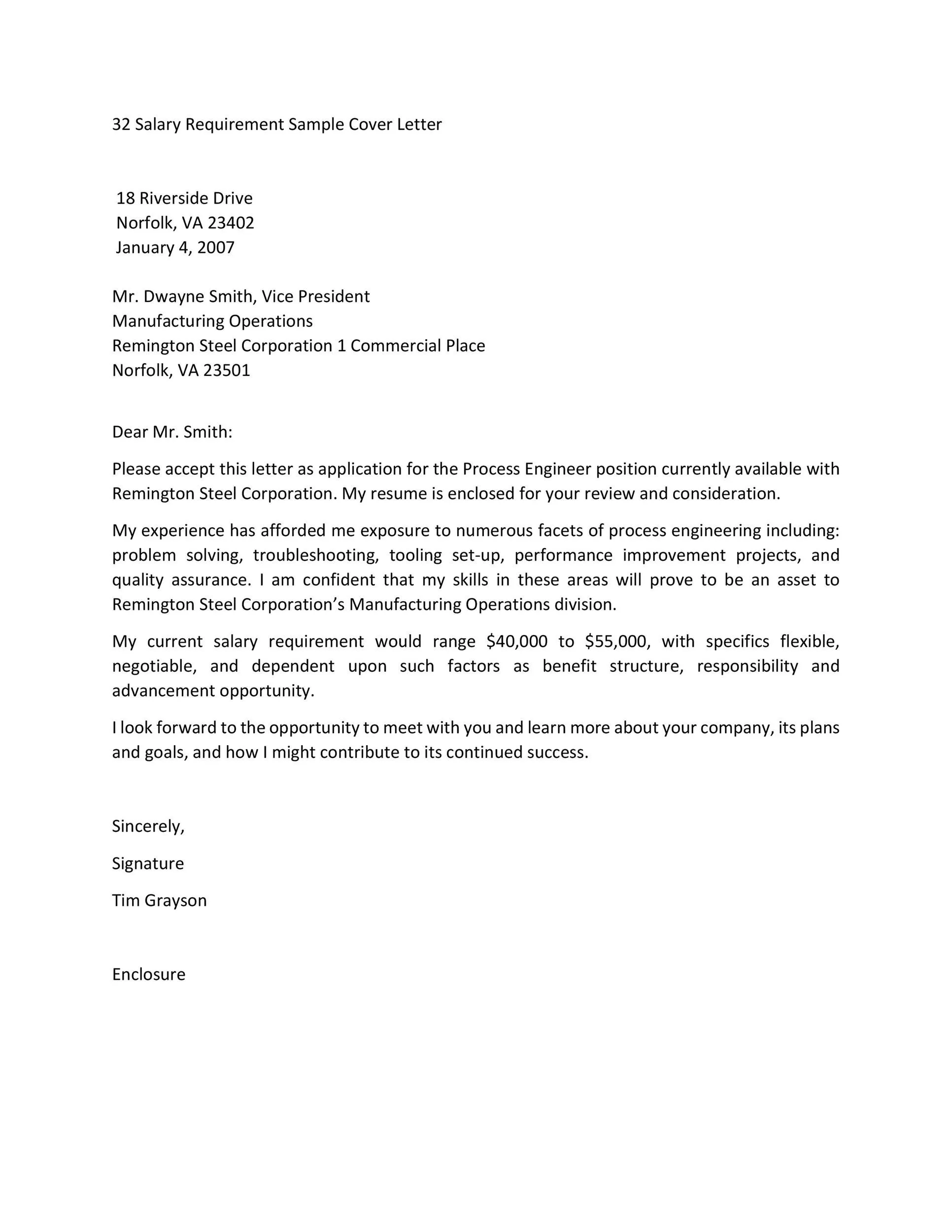
The timing of when to mention salary expectations is crucial. Generally, you should include this information if the job posting explicitly requests it. If the application instructions ask for your desired salary, ignoring this request could lead to your application being overlooked. Conversely, if the posting doesn’t mention salary requirements, it’s often best to hold off. Focusing on your qualifications and how you can benefit the company should be your primary goal in the cover letter. In situations where you’re unsure, a safe approach is to use phrases such as ‘salary is negotiable’ or ‘open to discussion’ to keep your options open. This method allows you to express interest without tying yourself down to a specific figure before gaining more information.
Where to Put Salary Expectations in a Cover Letter
The best place to mention your salary expectations is usually near the end of your cover letter. This placement allows you to first highlight your skills and express your enthusiasm for the role. The closing paragraph is a natural spot to summarize your interest and reiterate your key qualifications. You can include your salary expectations within this summary. Some job seekers prefer a separate sentence to clearly state their expectation. For example, you might write something along the lines of, ‘I am seeking a position with a salary in the range of $X to $Y, commensurate with experience and the responsibilities of the role.’ Always make sure this statement fits smoothly within the context of your closing paragraph, ensuring it feels natural and not forced.
Option 1 Mention Salary Range
Providing a salary range is a common and often recommended approach. It shows flexibility while still giving the hiring manager an idea of your financial requirements. By offering a range, you give yourself some room for negotiation. This method also demonstrates that you are realistic about the value you bring to the organization. You can tailor your range to reflect market data for your specific role and the company’s location. It is important to be mindful, though, that the range should be reasonable and aligned with your experience. Avoid creating a range that is too wide, as it could make it seem you lack confidence or have not done your homework. Keep it tight and well-researched to show that you are a strong contender.
How to Determine a Realistic Salary Range
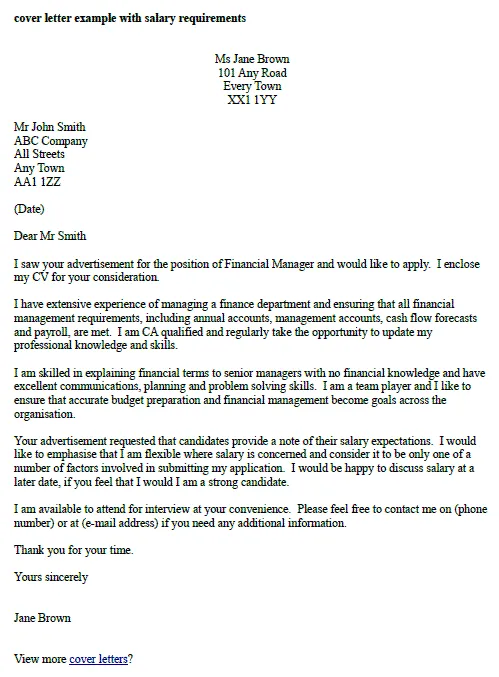
Determining a realistic salary range requires some homework. You need to base your numbers on several key factors: your skills, experience, location, and the specific role. Consider the industry standard and what similar positions are paying in the local market. This data will allow you to make informed decisions. You should also consider the scope of your responsibilities and the size of the company. Larger companies might offer higher salaries than smaller ones, and roles with greater responsibilities should command more pay. This will help ensure that your expectations align with the realities of the job market.
Researching Salary Ranges for the Role
Start by researching the typical salary range for the specific job title you’re applying for. Use online resources like Glassdoor, Salary.com, and LinkedIn Salary to get an overview of the market. These platforms aggregate salary data from users and employers, providing a fairly accurate snapshot. Look at how your experience and qualifications compare to those of others in similar roles. If you have more experience or possess specialized skills, you may be able to command a higher salary. Additionally, take note of the location, as salaries vary widely between cities and regions. When in doubt, research similar roles in similar companies and adjust accordingly.
Using Online Salary Calculators
Online salary calculators are helpful tools for quickly estimating potential earnings. Websites like Payscale and Glassdoor offer easy-to-use calculators that require you to input information about the job title, location, experience level, and any special skills or certifications you possess. These calculators use algorithms to generate a salary range based on this data. Remember, though, that these tools provide estimates. They don’t consider specific company cultures or the nuances of a particular job description. To get a better sense of the average salary for your skills, combine the results from different calculators. Use this as a starting point, and then refine it by examining similar job postings and industry reports.
Option 2 Negotiable
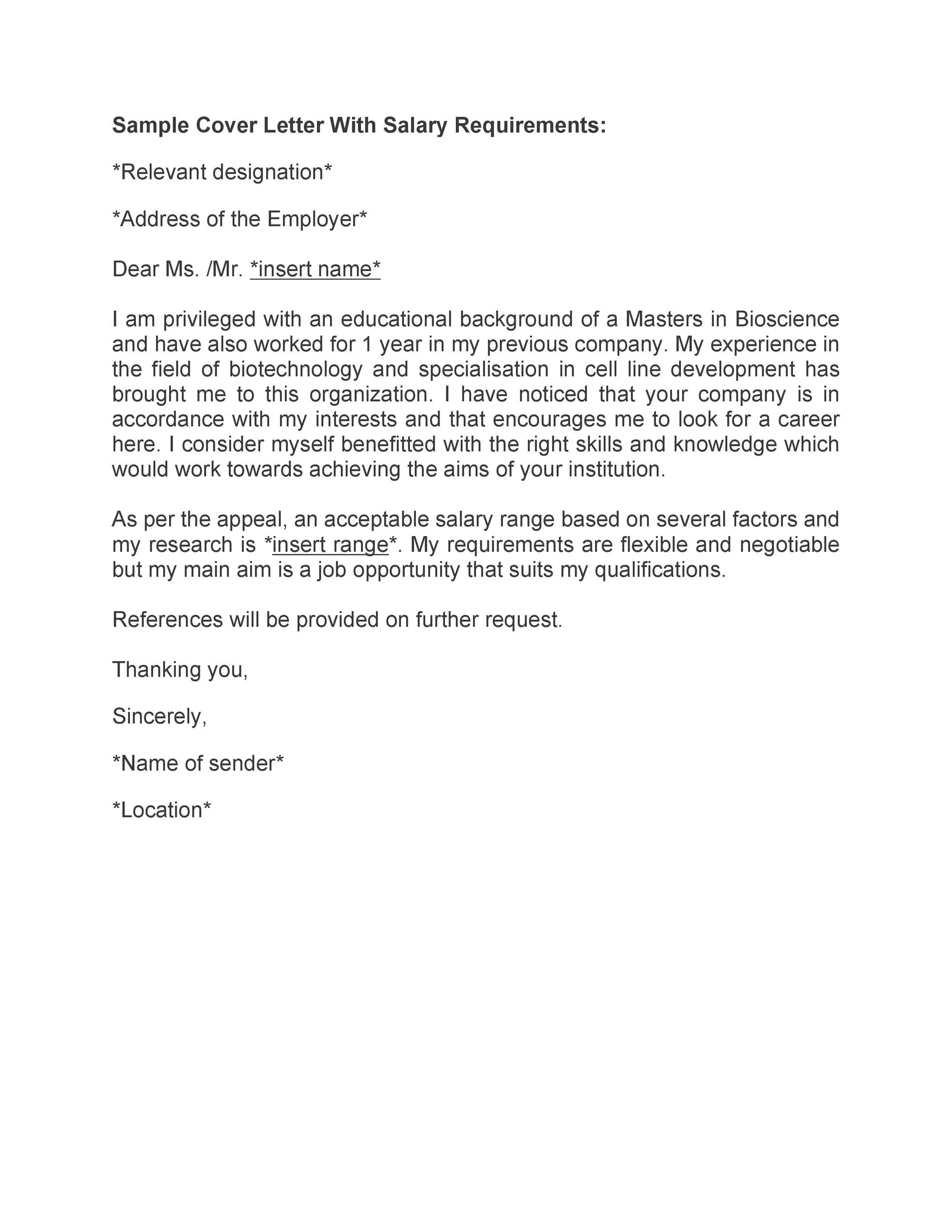
Using the term ’negotiable’ is a way to express your openness to discuss salary without providing a specific number. This option is often suitable if you are unsure about the typical salary range for the role or the company’s pay structure. This strategy can be especially useful if you are early in your career or the job description is vague. It signals that you’re willing to be flexible and discuss your financial expectations during the interview process. It also can be helpful if you’re applying for a position in a new industry or a role with a wide range of potential responsibilities. The ’negotiable’ approach allows you to keep your options open while indicating that you are serious about the opportunity.
When ‘Negotiable’ Might Be the Best Choice
The ’negotiable’ approach works well in certain situations. If the job posting doesn’t request a salary range, you might consider this as an option. It is also helpful when the responsibilities of the role are not clearly defined. In these cases, offering a specific number might limit your chances of earning more. Using ’negotiable’ is a wise choice when you are transitioning careers, and are not certain of the standard pay rate. Moreover, if the company is known for its generous benefits or other perks, the ’negotiable’ option allows you to consider the whole compensation package, not just the base salary. Always consider your specific situation and weigh the advantages before making your decision.
How to Phrase ‘Negotiable’ Effectively
When using ’negotiable,’ it’s important to phrase it professionally. Avoid vague or casual language. You could write something like, “My salary expectations are negotiable, and I am eager to discuss compensation further during the interview process.” This wording clearly indicates that you are open to negotiation while also expressing enthusiasm for the opportunity. Another option is to say, ‘I am flexible on salary and believe my experience and skills align with the competitive market rate.’ This demonstrates your willingness to negotiate while highlighting your value. Remember to always sound confident. After an interview, if the interviewer asks you about your expectations, you can use your research to give a more concrete answer.
Option 3 ‘Open to Discussion’
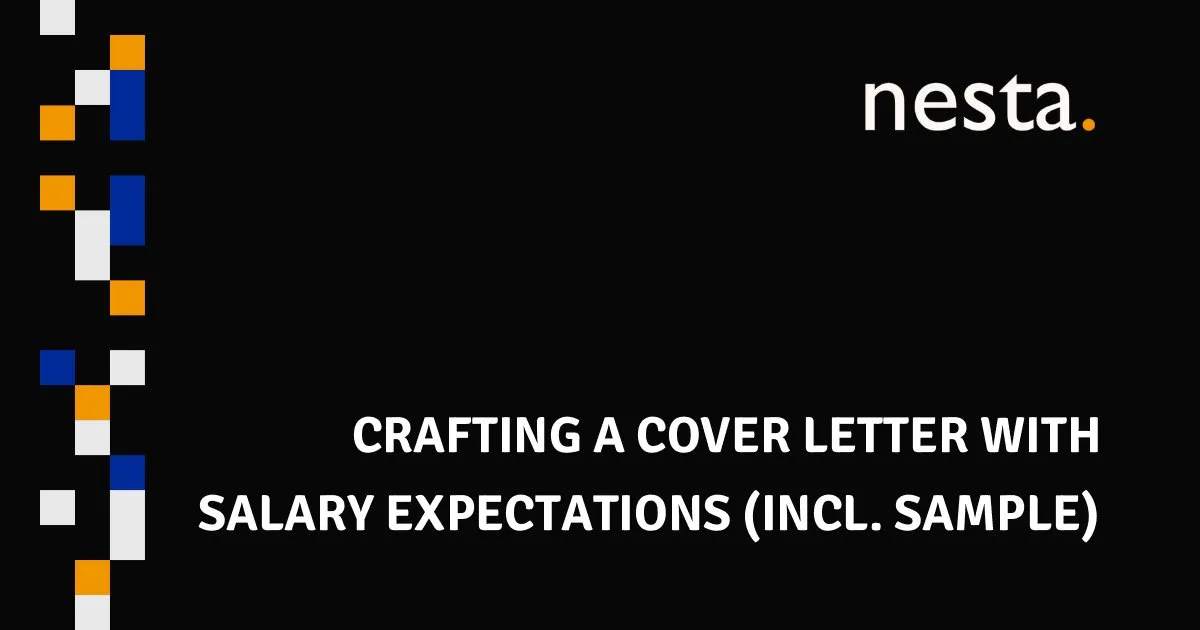
The phrase ‘open to discussion’ is another option for addressing salary expectations in your cover letter. This is a more general approach than ’negotiable.’ It clearly indicates that you are prepared to discuss the topic further. This wording can work particularly well when the job posting doesn’t request a salary or when you prefer to delay providing a specific number until later in the hiring process. By saying ‘open to discussion,’ you invite the hiring manager to engage in a conversation about salary during the interview, which allows you more context.
Advantages of Using ‘Open to Discussion’
Using ‘open to discussion’ has several advantages. It offers a degree of flexibility. It allows you to learn more about the role and the company’s compensation structure before providing a specific number. This approach can also be useful if the company is known for its benefits. It gives you the chance to assess the overall package before making a decision. Moreover, it can be a good strategy if you lack extensive experience in the field or are unsure about the average salary range for the position. ‘Open to discussion’ protects you from potentially undervaluing yourself and allows you to assess the situation more fully before making a financial commitment.
How to Phrase ‘Open to Discussion’
When using the phrase ‘open to discussion,’ aim for a professional and enthusiastic tone. You might write, ‘I am open to discussing salary expectations during the interview and am confident we can reach an agreement that is mutually beneficial.’ This phrasing shows that you are interested in the role and confident in your ability to come to a fair agreement. Another option is to say, ‘I am open to discussing salary during the interview, as I believe my skills and experience align with the market rate for this position.’ This shows your understanding of the importance of the role and is another great option. Always sound positive and enthusiastic. This will help you make a good first impression on the hiring manager.
Mistakes to Avoid When Writing Salary Expectations
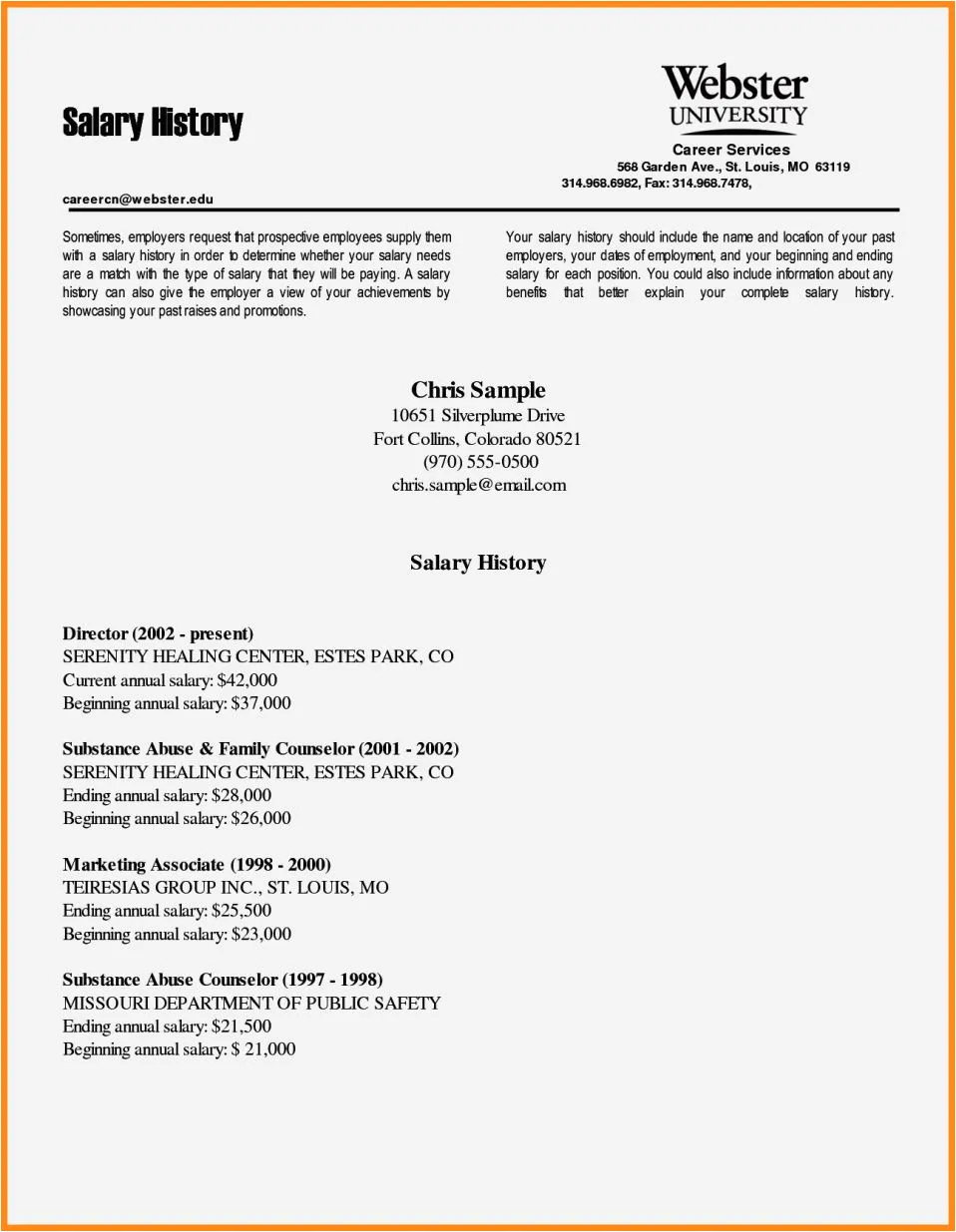
There are several mistakes you should avoid when writing about salary expectations in your cover letter. Being mindful of these pitfalls can help you present yourself as a thoughtful and professional candidate. By carefully reviewing and addressing these mistakes, you will greatly increase your chances of getting noticed by the hiring manager.
Not Researching the Market
One of the most common and damaging mistakes is failing to research the market. Providing a salary expectation without a basis in market data signals that you might be out of touch with industry standards. It can lead to your application being rejected early on. Even if you are not asked for a specific range, researching the market for a role in your area is always a good idea. This will help you formulate a strong and confident position for the interview. This research will show that you are serious about your job search and understand your value. Use online tools like Glassdoor, Salary.com, and Payscale to help you understand the market.
Providing an Unrealistic Range
Offering an unrealistic salary range can undermine your credibility. A range that is too high could immediately disqualify you. On the other hand, one that is too low could make the hiring manager question your skills or understanding of the role. Consider your experience, education, and skills when determining your range. Keep your expectations in line with industry standards and the company’s location. It is essential to be realistic about your value, so be honest with yourself during your research, and then create your expectations based on that. Remember that showing confidence and professionalism can help you increase your chances of being hired.
Being Too Specific Too Early
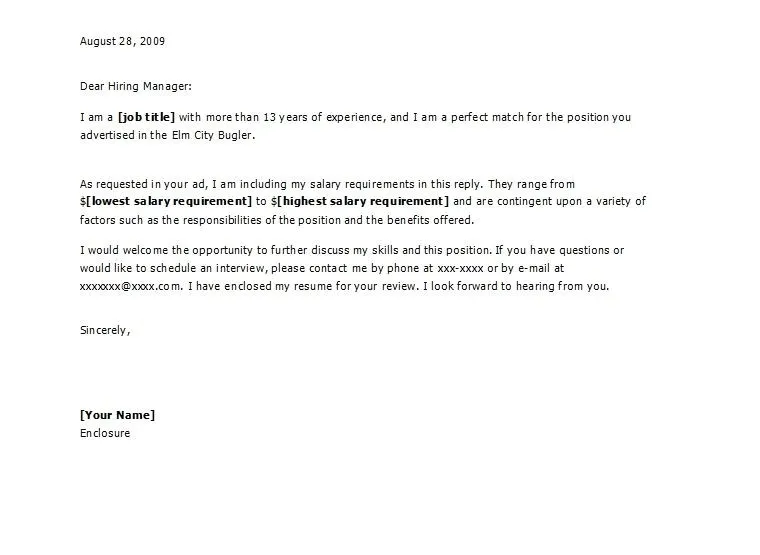
Being overly specific with your salary expectations too early in the process can limit your negotiation power. Unless the job posting explicitly requires a specific salary or range, avoid providing precise numbers in your cover letter. Instead, use the ’negotiable’ or ‘open to discussion’ options. This approach allows you to gain more information about the role and the company’s compensation structure during the interview. Being flexible gives you more opportunities to showcase your value and tailor your expectations based on the specific details. By taking this approach, you will be better equipped to negotiate the salary and benefits you deserve.
Formatting and Tone
The way you format your cover letter and the tone you use are very important, and they should reflect professionalism and careful consideration. These aspects contribute significantly to how the hiring manager perceives you. A well-formatted letter with a professional tone can make a positive impression. When writing about salary expectations, make sure these aspects are right.
Formatting Best Practices
Formatting is as essential as the content of your cover letter. Keep your letter clean, readable, and easy to navigate. Use a standard font like Times New Roman or Arial, with a size of 11 or 12 points. Break up your text with paragraphs and use white space to make it easier on the eye. Use clear and concise language. Avoid using lengthy sentences or complex jargon. Make sure your sentences are well-structured and each section makes a logical transition. Always proofread your letter carefully for any typos or grammatical errors, as these can detract from your professionalism. Ensure the letter is well-organized, and your salary expectations are clearly stated and integrated seamlessly into the overall text.
Maintaining a Professional Tone
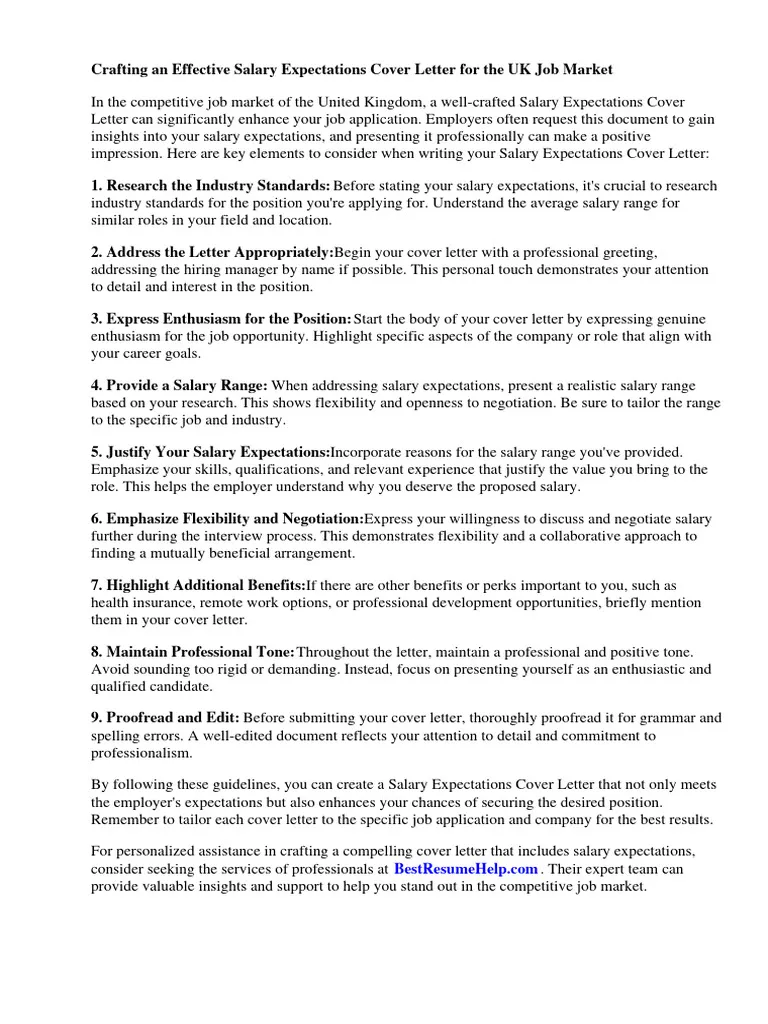
Maintain a professional tone throughout your cover letter. Your language should be formal and polite. Avoid slang, contractions, and overly casual language. Focus on the value you bring to the table and your enthusiasm for the role. Demonstrate your research and understanding of the company. Avoid sounding desperate or demanding. If you use “negotiable” or “open to discussion,” present yourself with confidence and positivity. Your tone should always reflect confidence. This is a way to show that you are serious about the job and that you are the best candidate for it. By maintaining a professional tone, you will show the hiring manager that you are the best choice.
Final Thoughts and Next Steps
Writing about salary expectations is a key part of the cover letter, so take your time. By understanding the context, researching the market, and phrasing your expectations effectively, you can set yourself apart from other candidates and improve your chances of success. By following these expert tips, you’ll approach this often difficult subject with confidence. Before submitting your cover letter, review everything carefully. Make sure you’ve customized your letter to the specific job and company. Proofread again to ensure there are no errors. After sending, prepare for the next steps, which may include an interview. Practice discussing your salary expectations and be ready to justify your range based on your research and qualifications. Good luck, and remember to present yourself as the best candidate.
